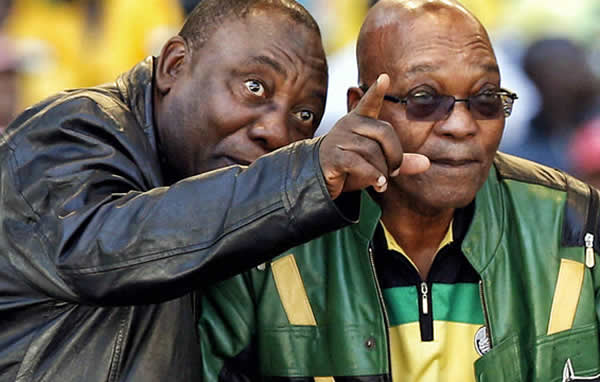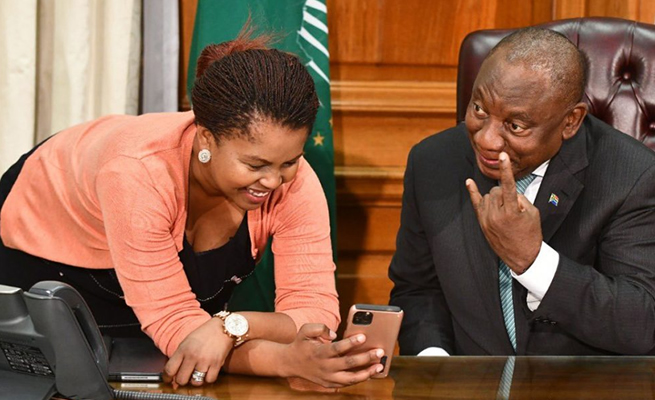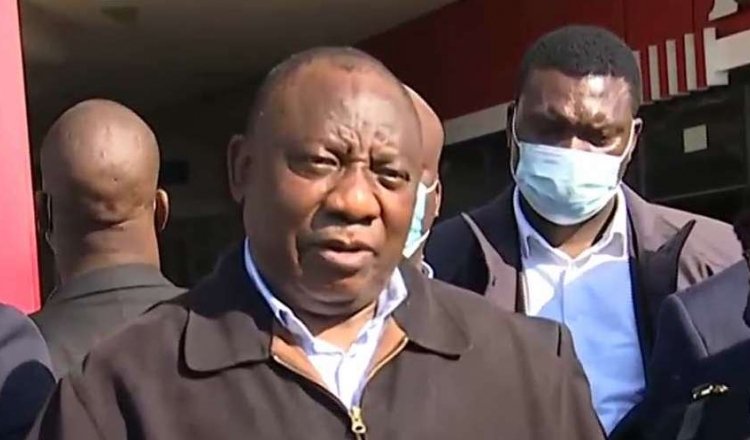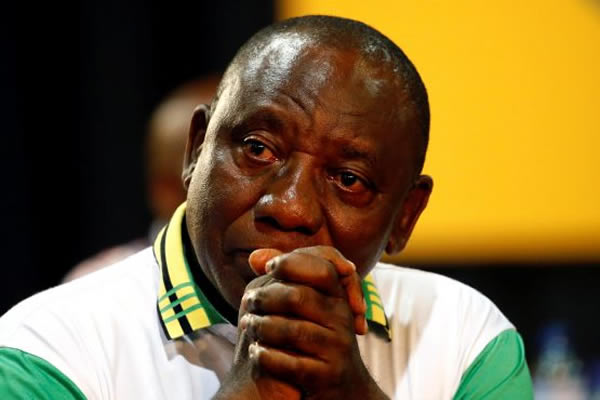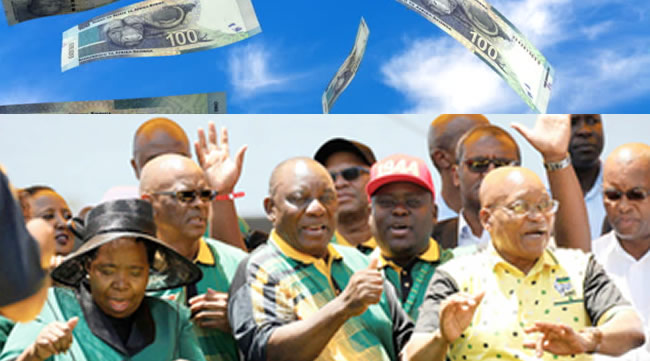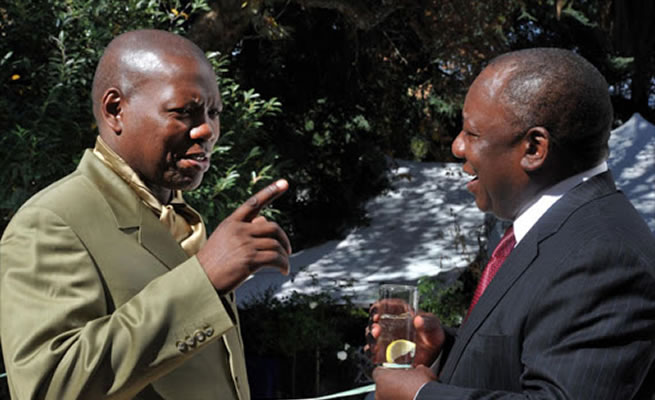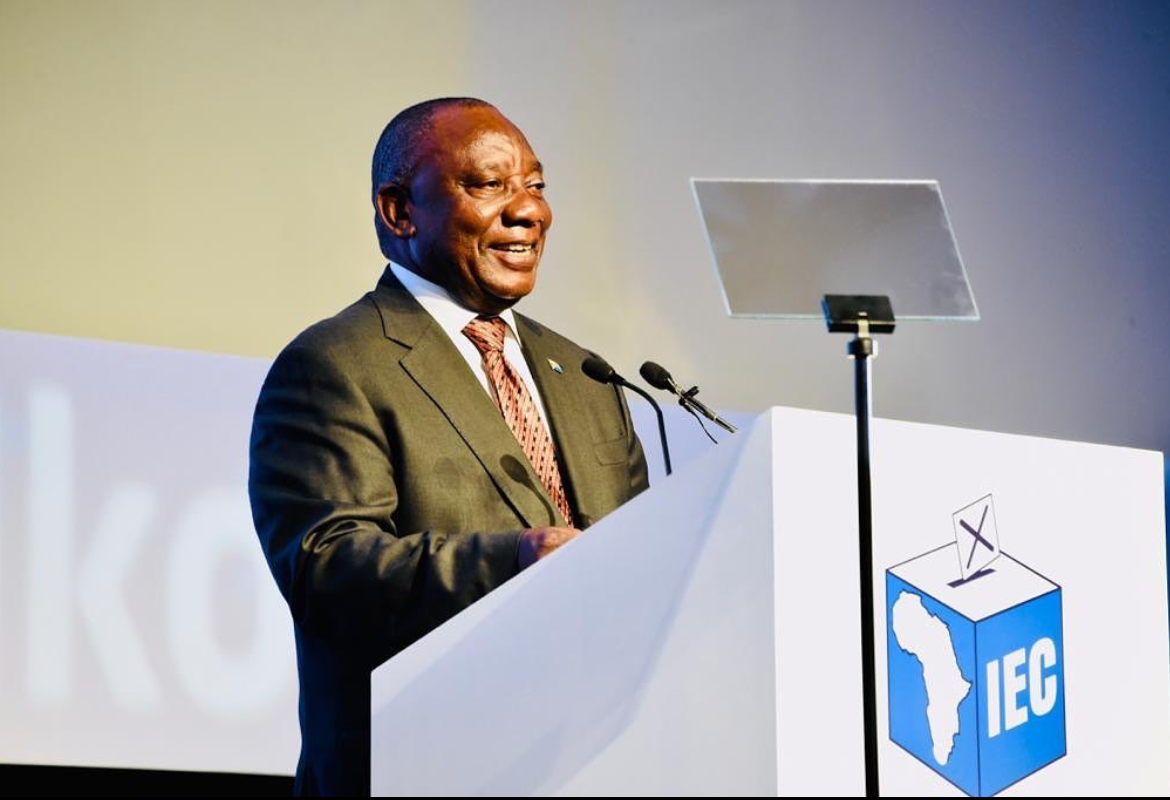Angry residents attack President Ramaphosa’s sister over power cuts – Threaten to burn her house
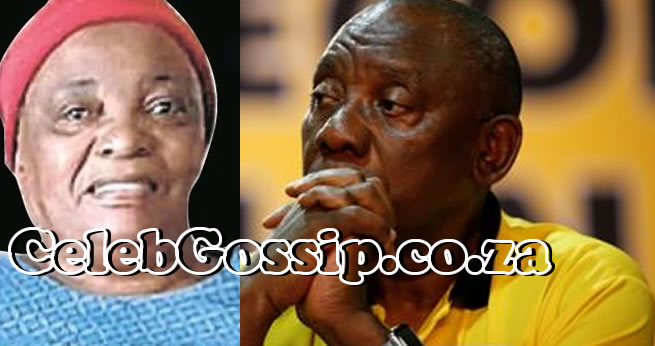
Lock the door and don’t open for anyone!
That’s the advice President Cyril Ramaphosa gave to his sister, Ivy Ramaphosa, who lives in Chiawelo, Soweto, as residents protested outside her house over a recent electricity blackout.
They shouted at her to “phone your brother” to attend to their grievances and threatened to burn down her house, she said.
The protest happened a week before Ramaphosa visited Soweto on a local government election campaign for the ANC.
The president’s chilling advice to his sister underlines the sense of crisis and anger over blackouts in the township, which owes Eskom R7.5bn, down from R12.8bn after the utility wrote off R5.3bn in debt.
Ivy said the president also advised her to remove the emergency light bulbs which were a back-up system for when there were electricity cuts, as this made it appear to the protesters as if she alone always had electricity.
This week Ivy told of her fear as angry residents gathered outside her house, prompting her to phone her brother and the police. Residents also made their feelings known to Ramaphosa during his visit.
Since Ramaphosa’s promise to residents last week to fix their electricity problems, Eskom teams have been noticeably more active, according to residents the Sunday Times spoke to this week.
Since the incident, police have also conducted regular visits to Ivy’s home to check on her and her grandchildren.
Provincial police spokesperson Lt-Col Mavela Masondo confirmed to the Sunday Times that on September 10, a group of about 300 people protested in Chiawelo complaining about electricity.
Masondo said the “peaceful” protesters dispersed after police responded to the incident.
Brig Vish Naidoo said Ivy is not getting special treatment. “A community member does not need to call the president for us to respond like that. We respond to thousands of protest actions around the country, so why would this one be different?”
Naidoo said it is standard operating procedure for the police when dealing with vulnerable groups, which include the elderly, women, children and people living with disabilities, to go the extra mile and check regularly to ensure there are no further threats.
Presidency acting spokesperson Tyrone Seale declined to comment.
Ivy said she made the phone call to her brother after a crowd gathered outside her home.
“I called him and told him that there was a crowd gathered outside and they are making noise, singing, carrying weapons, and I don’t know what they want to do. I closed the burglar bar and he told me not to open for anyone,” said the president’s 72-year-old sister.
She said she is living in fear after community members claimed that the family home never experiences load-shedding because Ramaphosa is her brother.
“I have to be extra careful now, I cannot just open for anyone,” she said as she opened her gate to visitors recently.
Ivy, who has lived in Soweto since 1963, said she started noticing the electricity grid in Chiawelo was overloaded when backyard shacks began mushrooming in 2011.
“If I remember correctly, initially we were without electricity for about two weeks at a time and we had to go to Eskom to complain. We also told the councillor that we did not have electricity and we did not know what the problem was.”
The community later learnt that a transformer had exploded.
“They helped us but it’s still problematic. Sometimes it is on and sometimes it’s off. So now it’s like load-shedding but
since [Ramaphosa visited the area last Saturday] we have not had any electricity cuts.”
During the president’s 2021 local government elections campaign road show in Soweto last Saturday, Ramaphosa visited Nomzamo informal settlement, Naledi and ward 11 in Chiawelo, where community members complained about continuous Eskom power
cuts.
“Recently in block 11 they did not have electricity for about four days, then the community gathered here by the house but they did not do anything. I quickly called the police,” said Ivy.
“They said the president must speak to Eskom because we do not have electricity, so we will rather burn the house. So I had to phone the police and they came to see what was going on. About two weeks back they did not have electricity that side, so they came again and closed the street with rocks and said they will start burning the house.
“They said this is the president’s home, so they will burn it if he doesn’t speak to Eskom, but they have calmed down since he came to address them. The policeman that comes to check on me all the time said to me, ‘Mama, relax, they are connecting the electricity for them now.’ ”
Knowing that the police are only a phone call away has brought much relief to Ivy. “I am free now. At least I am never by myself.”
She said the community “said if they can go to his [the president’s] house, he will do something about their grievance. [The president] asked me if I reported the matter to the police and I said yes. The police came, about seven cars. It is scary because when they start complaining about the electricity this is the first place they run to.”
She said this was not the first time the community had threatened her. “They like to scare me when they don’t have electricity. It’s what they do.”
The incident also startled first lady Tshepo Motsepe, who advised Ivy to lock herself in the house.
“She said, ‘Don’t go out’, and I told her I won’t because I do not know what they want to do. You understand when you are old and you see a crowd with men and women carrying babies, it is terrifying. It is especially frightening for my granddaughter, she always says: ‘Gogo! Khiya, Gogo, khiya Gogo, bangangeni. [Lock the doors, Gogo, so that they do not enter].”
Ivy reassures her granddaughter that no harm will come to her.
“The president is really worried but since he came, it’s quiet. I think he reprimanded them and by now, I think, because they have electricity, they spoke to Eskom to reconnect the lights.”
To save electricity Ivy said she uses a gas stove and keeps her LED lanterns charged in case there is a power blackout.
She said her brother had removed the house’s electric stove because it consumed too much electricity. “Then I have two geysers, one is switched off and we use the other one. We only switch on the lights in the area that we are using to save electricity.
“I am like everyone else. It’s just that I am quiet and I don’t complain. I do not get preferential treatment. If I do not have, I don’t have, just like others. [It’s just that when the electricity cuts out] I can cook and if it is cold, I can light my heater and I have one of those rechargeable LED lanterns that come on when the electricity goes off.
“My sister-in-law, the first lady, told me that I should get emergency globes that switch on automatically when there is load-shedding. The president sent someone to take them out and said ‘usisi makafane nabanye abantu ’ [my sister should not be treated differently]. If it is dark then it should be dark for everyone.”
Despite Ivy insisting that she is not getting special treatment, Chiawelo residents blocked Mhlaba Drive demanding electricity from her.
A woman who was part of the recent protest, who asked not to be named, said: “I saw about four or five police vehicles surrounding the property. People are always complaining, saying, ‘Why does the electricity never go off at Cyril’s house but now and then we don’t have electricity?’ ”
In Nomzamo informal settlement, Nozibonele Njuqu said the president honoured a promise he made last Saturday to have the damaged transformers replaced by Tuesday this week.
“On Sunday morning we saw Eskom workers. They replaced the old transformers with new ones. I was very happy to see that the president is a man of his word,” said Njuqu.
